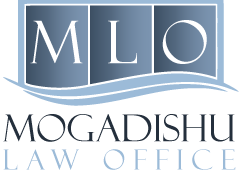UN Mission Funding Crisis Creates Security Investment Risks
- June 10, 2025
- Posted by: Haji Osman
- Categories: Business News, International, Investment & Trade, Legal Insights

The United Nations Security Council’s recent decisions regarding Somalia create significant uncertainty for international operations and investment in our country. We observe that the missed May 15, 2025 deadline for AUSSOM financing represents more than administrative delay – it fundamentally alters the legal landscape for businesses and organizations operating in Somalia.
According to UN reports, the Security Council failed to reach consensus on implementing the $166.5 million financing framework for the African Union Support and Stabilization Mission in Somalia, despite broad member state support. This breakdown occurred even though Resolution 2719 had established mechanisms for UN funding to cover up to 75% of AU mission costs. We note that Somalia’s own abstention as an elected Security Council member highlights the complex political dynamics affecting these critical security arrangements.
The financing crisis creates immediate legal concerns for our clients. Without secured AUSSOM funding, the mission’s operational continuity becomes uncertain, potentially creating security gaps that affect contract enforcement, asset protection, and liability exposure. We advise international stakeholders to review their security provisions and force majeure clauses, particularly for operations scheduled beyond July 2025 when the current financing was set to begin.
What Changes for Business Operations
The UN’s transition timeline adds another layer of complexity. The United Nations Transition Mission in Somalia continues its first phase until October 31, 2025, with complete mandate termination scheduled for October 2026. Meanwhile, the UN Support Office in Somalia received mandate extension until December 2025, but faces an independent strategic review by April 2025.
We assess these overlapping timelines create regulatory uncertainty. Businesses must prepare for potential changes in international support structures that have provided operational frameworks for commercial activities. The September 2025 benchmark reporting requirements will likely influence future international engagement terms, affecting long-term planning for investors and contractors.
Our experience since 1984 shows that such transitions often trigger changes in liability frameworks, dispute resolution mechanisms, and regulatory compliance requirements. Companies should anticipate potential gaps in international oversight that may affect everything from customs procedures to contract enforcement.
Practical Steps for Stakeholders
We recommend immediate review of existing agreements for security-related contingencies. The uncertain AUSSOM funding situation requires businesses to reassess their operational security arrangements and associated costs. This particularly affects logistics companies, extractives operations, and development projects that rely on stable security environments.
Government sources confirm that upcoming UN reports in September 2025 will evaluate AUSSOM’s exit strategy and benchmark progress. These assessments will likely influence international engagement terms and should inform strategic planning. We advise clients to monitor these developments closely as they will affect regulatory frameworks and operational parameters.
The financing deadlock also demonstrates the importance of diversified risk management strategies. While international missions provide important stability, businesses cannot rely solely on external security arrangements. We encourage clients to develop comprehensive local partnerships and alternative security protocols that reduce dependence on international mission continuity.
Building on our recent analysis of Somalia’s legal framework developments, these Security Council decisions reinforce our assessment that successful operations require deep understanding of both international and domestic legal structures. The current uncertainty emphasizes the value of experienced local legal counsel who understand how international mandates translate into practical business operations.
We continue monitoring these developments to provide timely guidance as the situation evolves. The intersection of international mandates, domestic governance, and commercial operations requires careful navigation that our firm stands ready to provide based on our four decades of experience in Somalia’s evolving legal landscape.

